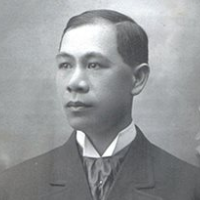UC Davis Law Students Want Chinese Attorney Admitted to Bar 124 Years after His Death
 Hong Yen Chang
Hong Yen Chang
Attorney Hong Yen Chang would probably agree with the legal maxim, “Justice delayed is justice denied,” if he were still alive.
But the Yale-trained lawyer, denied admission to the State Bar by the California Supreme Court solely because he was Chinese, died 124 years ago.
Now, law students at the University of California, Davis are trying to right an old wrong by making a spirited effort to have Chang licensed in the state posthumously. Two professors and students from the law school's Asian Pacific American Law Students Association submitted an application for admittance to the State Bar of California on Chang's behalf. The Bar vets all applications and its recommendations are usually, but not always, accepted by the high court.
Chang was born in China and came to the United States when he was 12 years old as part of the Chinese Educational Mission. The program was designed to teach Chinese kids about Western culture and by all measures Chang thrived.
Chang attended Hartford Public High School in Connecticut and then the exclusive Phillips Academy in Andover, Massachusetts. After graduation, he went to Yale. But China cancelled the mission in 1881 and Chang was forced to return home.
He returned a few years later and graduated from law school at Columbia College in 1886. He was naturalized shortly before applying for admission to the Bar in New York. It took a change in state law in 1887 for him to be admitted the following year at age 27. He was said to be the only “regularly admitted” Chinese lawyer in the country.
The Times attested to him being “a very bright young man” who “speaks excellent English,” but also observed that “he has a decidedly Chinese look.” The story noted that “a colored man” also passed the Bar, and gave a detailed description of his “bright mulatto color” and “kinky” hair. “He looks more like a Spaniard or a Cuban than an African,” the Times wrote.
Despite the blatant racial profiling of the day, Chang's New York reception was respectful and considerate compared to his reception in California when he moved to San Francisco in 1890 to practice law. The state Supreme Court turned down his application to the Bar, citing the federal Chinese Exclusion Act and a California law prohibiting noncitizens from practicing law.
The federal law was passed in 1882 and barred Chinese natives from obtaining U.S. citizenship. It stayed on the books in various forms until 1943 when Congress repealed it and other exclusionary acts. Although no longer 100% exclusionary, laws drastically limiting immigration of Chinese nationals were on the books until Congress passed the Immigration Act of 1965. Those hard caps stayed in place until the Immigration Act of 1990 instituted comprehensive reform with “flexible” caps based on a variety of factors.
Gabriel "Jack" Chin, a professor at UC Davis School of Law, told the Associated Press that California has no precedent for licensing a lawyer posthumously, but other states have done it. In 2010, the Pennsylvania Supreme Court admitted George Vashon to the Bar. He had been refused in 1847 because he was black. The Washington state Supreme Court admitted Takuji Yamashita to the Bar in 2001. He had been barred in 1902 because of his Japanese ancestry.
After being denied a license in California, Chang worked for the Chinese Consulate and the Yokohama Specie Bank of Japan in San Francisco. He returned to China in 1907, where he carved out a career as an educator, banker and diplomat. He died in Berkeley in 1926.
–Ken Broder
To Learn More:
Law Students Push to License Dead Chinese Attorney (by Paul Elias, Associated Press)
Hong Yen Chang Project (UC Davis Asian Pacific American Law Students Association)
Hong Yen Chang and a Colored Student Admitted to the Bar (New York Times, May 18, 1888)
- Top Stories
- Controversies
- Where is the Money Going?
- California and the Nation
- Appointments and Resignations
- Unusual News
- Latest News
- California Forbids U.S. Immigration Agents from Pretending to be Police
- California Lawmakers Urged to Strip “Self-Dealing” Tax Board of Its Duties
- Big Oil’s Grip on California
- Santa Cruz Police See Homeland Security Betrayal in Use of Gang Roundup as Cover for Immigration Raid
- Oil Companies Face Deadline to Stop Polluting California Groundwater





